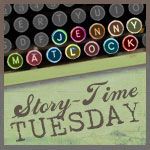I’ve been writing these weekly stories about life in Northern Idaho, as a youngster and as growing into a young man, primarily for our family. And I'm delighted to share them with you. Just between us, I’m anticipating being cranky when some whipper-snapper who may not even be born yet harasses me in 30 years or so with 'Grandpa, tell me about when you were a boy.' That will probably be after the mad cow disease has set in and erased whatever memory is left. So these are the not-so-dramatic adventures of a Baby Boomer in the 1950s, 60s and 70s.
JOINING THE FAMILY BUSINESS, PART 2
To read Part 1, just click here.
“Don’t screw it up,” my mother had said.
“Here’s the key to the front door,” said my father and my cousin, my new bosses, “good luck.”
I had resisted joining the family business for a number of years, but my entrepreneurialism trapped me. The family had operated community newspapers in North Idaho for many decades. I was working for a non-related firm in Boise, 350 miles to the south of the home town, and not making any money when I heard of a small suburban newspaper that might be for sale. It made sense to me: The town was in the path of growth, and the newspaper should prosper. I proposed the purchase of the suburban paper to the family, and the members agreed to buy it. When it came time to collect a sales commission for the purchase, my father proposed I take a job at the new newspaper instead. Reluctantly, I did.
I was 27 years old. I had been writing for a number of years, and editing some newspapers along the way. I had a journalism degree, and I could write a good news story and take a decent photo. But I knew very little about the rest of the newspaper business.
My new newspaper was the Valley News-Times, was a 60-year old sheet that printed 12-16 large-sized pages once a week on Thursdays. It was filled with news of the local farm granges, of the grade schools and local high school, of weddings, funerals and births; it had a few advertisements from local businesses, some classified ads, and photos of readers’ vacations that had been submitted. That was about it for content. It had around 3,000 paid circulation at the pricy sum of six dollars per year.
That first day on the job, I was clueless.
“Young man,” said the lady at the counter, “can I place a classified ad please?”
“Yes, of course, just a minute please,” I replied, as I searched for a classified ad form to use. The bookkeeper was smirking at me.
That started my career as a newspaper publisher.
The newspaper had three or four “contributors” of news who called in the grange, school, and club news each week. There was a full time bookkeeper who also took the classified ads over the phone and handled walk-ins. There were two part-time ladies who built advertisements and consisted of the production department. Typesetting – using hot type linotypes and wooden type for the headlines – was outsourced to the commercial printer who shared the small building on Main Street we inhabited. We had no advertising department or news department, those were my jobs now.
It newspaper looked awful and it read even worse. I hated it. But I learned over the years that this paper’s content was more the norm for rural, small town newspapers, than the exception.
It was a small town newspaper, in a small town that was in the path of dramatic growth. I had to figure out how to turn this awful rag into a real newspaper that would survive long enough for the growth to flood that suburban area in the coming years.
Here is a recent photo Main Street. Then the town had about 4,000 residents, maybe 10,000 in our newspaper’s circulation area. Today the town has more than 75,000 and 400,000 in that circulation area. Growth did arrive.

Judy, the bookkeeper/classified lady, reminded me that first day that I had to attend the local Chamber of Commerce meeting at noon, a potential new advertiser was coming in at 2, two of the editorial contributions would be dropping by, and that I should plan on attending the city council meeting that evening after a early dinner with her and her husband at the local grill. She continued to smirk.
The former owner, who was also the writer, editor, ad salesman, and janitor, had produced the paper for about 30 years before I came along to replace him. Judy, who at worked at paper for the last six years, kept his schedule and kept him in line. She thought she was going to do that with me, but it didn’t work out that way.
She did, however, continue to smirk at me for a number of years.
That first day I called the financial manager at the family business, Bill Briggs, with burning questions, “Do I have a budget? What can I spend? I can’t do all of the jobs myself and growth this thing. I know nothing about billing or collecting, or selling an ad for god’s sake. Cash flow? You are kidding, right? ” He flew-in the next week, and we attempted to put a budget together and hammer out a first year business plan. Business plan? I had heard the term before, but I had never seen one. Briggs told me not to worry about cash and paying the bills, he would take care of that. I didn’t understand then what a safety net that would become in the following years.
I called my old journalism professor at college that first afternoon on the job, “Help!” I told him I needed two fresh graduates who could write fairly well and who would work for near starvation wages. He sent two, and in a few weeks I had an editorial staff.
I called another professor at a different college, where I had taken some marketing classes a few years before: “Find me one or two recent graduates in advertising who can sell in a small town, who will work for near starvation wages, quick!” In a month, we had an advertising staff.
Then I plunged into new technology: I bought a fax machine. For four thousand dollars, an ancient predecessor to the ones you can buy today for fifty dollars at Best Buy. One of those new fangled devices that would hold a sheet of paper around a cylinder, then spin it with an optical reader moving across the cylinder. It was wondrous. We were too small for a teletype machine, but the fax gave us a source of regional news coming from the family newspaper.
Next I really jumped into technology, asking a company to design and quote a newspaper computer system to produce the news and advertising content, and to move us quickly away from the old linotype machine and letter press we were using then -- an investment that would equal about fifty percent of what we paid for the entire business. It was a time about ten years before the first desktop computer was rolled into the U.S. market, and a time when IBM dominated the small business bookkeeping markets with their boxes that read punch cards for data impute. My bookkeeper kept a hand ledger, for as long as I was there.
I asked Judy to find used office furniture and space for all of the people and changes I had coming. I don’t think she appreciated all disruption to the small world she had controlled so well for the prior six years.
Two weeks after walking in the front door, I was an accomplished producer of grange, school, and city council news. I was getting pretty good with the obituaries and weddings, too. I asked the chief news contributor, Birdy Dalrymple of Eagle (yes, really, that was her name and that was the nearby town she lived in) to come in near-full time for a few weeks to help me out. She did, and she was both a savior and a delight.
Two weeks into the job I had an inkling of where I wanted to take that newspaper over the next several years. I started calling it “the fun country weekly,” a name that stuck for the next decade.
Then I just needed to figure out how to get the bookkeeper / classified ads lady to stop smirking, as she knew I was far, far over my head.
(c) 2010 Stephen J. Matlock
This publication is the exclusive property of Stephen J. Matlock and is protected
under the US Copyright Act of 1976 and all other applicable international, federal, state and local laws. The contents of this post/story may not be reproduced as a whole or in part, by any means whatsoever, without consent of the author, Stephen J. Matlock. All rights reserved.




















4 comments:
This is strange new territory for me, but very interesting. Can you believe that I've never known anyone who had his/her own business? I'll follow your story with interest.
I used to really look forward to our once thriving small town paper. It has turned to crap over the past few years and I don't expect it to survive.
Great story! This is very interesting and I'm looking forward to the next installment. Not only is it interesting, but it's actually a historical story about small town america. Good job!
Fascinating stuff! It's all so interesting, seeing where you made the changes and brought in the expertise. I'm curious to follow this story through and to discover when Judy stopped smirking :)
Post a Comment